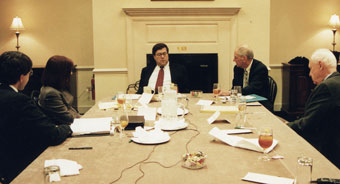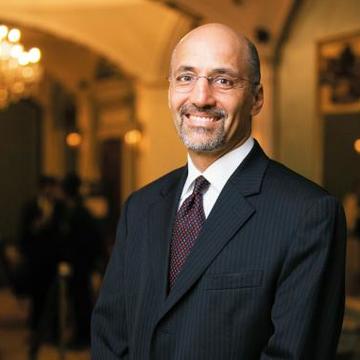From the Director: What Trump's attorney general pick told the Miller Center
Oral history is always relevant—our interview with William Barr is a perfect example of why
Seventeen years ago, William Barr sat down with the Miler Center to describe what it was like to be the attorney general of the United States under President George H. W. Bush.
Our oral history panel was filled with presidential historians and legal scholars. They asked him a series of tough questions.
Some were about institutional powers:
- How much power does the president of the United States have to enforce the laws?
- What is the appropriate relationship between the president and the attorney general?
- How much deference should the White House show the Justice Department?
- Should the president pick the deputy attorney general, or should that be left to the attorney general's discretion?
Others were about complex legal issues:
- What powers should special investigations have to examine potentially illegal acts by senior administration officials?
- Should the president be able to pardon officials who have been indicted by a special prosecutor?
- Should the Justice Department aggressively prosecute immigrants seeking asylum?

Barr’s oral history provided us with frank answers to those questions.
Last week, those answers became supremely relevant. President Trump invited Barr to return to the post he held 25 years ago.
The president has interpreted executive authorities broadly. He also has suggested that the Justice Department should closely follow his wishes as president. He has pointed criticism at both his last attorney general and at the deputy AG.
The president also has challenged the role of the special counsel on Russian interference in the 2016 presidential election. He has suggested that his pardon powers may come in handy. And his interpretations of border and asylum policies have proven to be highly controversial.
Barr’s answers to those questions in 2001 were surprisingly straightforward. Whether he still holds those views—or whether they would be applied similarly today—must be on the minds of the president, members of Congress, and a wide range of engaged citizens.
